Dagstuhl Seminar 18471
Next Generation Domain Specific Conceptual Modeling: Principles and Methods
( Nov 18 – Nov 23, 2018 )
Permalink
Organizers
- Heinrich C. Mayr (Alpen-Adria-Universität Klagenfurt, AT)
- Sudha Ram (University of Arizona - Tucson, US)
- Wolfgang Reisig (HU Berlin, DE)
- Markus Stumptner (University of South Australia - Adelaide, AU)
Contact
- Andreas Dolzmann (for scientific matters)
- Annette Beyer (for administrative matters)
Impacts
- Enhancing ER Diagrams to View Data Transformations Computed with Queriesarticle in DOLAP 2019 : Design, Optimization, Languages and Analytical Processing of Big Data - Ordonez, Carlos; Bellatreche, Ladjel - Aachen : CEUR, 2019. - 5 pp. - (CEUR Workshop Proceedings ; 2324).
- Intégrer les LOD dans un cube de données : Transformons une action technique en valeur organisationnelle - Khouri, Selma; Bellatreche, Ladjel; Ghomari, Abdessamed Réda; Aouimer, Yasmine - editions-rnti.fR, 2019. - pp.61-76 - (Revue des Nouvelles Technologies de l'Information ; B-15. 2019).
- LogLInc : LoG Queries of Linked Open Data Investigator for Cube Design - Khouri, Selma; Lanasri. Dihia; Saidoune, Roaya; Boudoukha, Kamila; Bellatreche, Ladjel - Berlin : Springer, 2019. - pp. 352-367 - (Lecture notes in computer science ; 11706 : article).
- Tool Support of Formal Methods for Privacy by Design - Schupp, Sibylle - Cornell University : arXiv.org, 2019. - 22 pp..
- Value-driven Approach for Designing Extended Data Warehouses : article in DOLAP 2019 : Design, Optimization, Languages and Analytical Processing of Big Data - Berkani, Nabila; Bellatreche, Ladjel; Khouri, Selma; Ordonez, Carlos - Aachen : CEUR, 2019. - 5 pp. - (CEUR Workshop Proceedings ; 2324).
Schedule
Modeling methods are crucial for the development and the operation of software driven information systems. Shortly summarized, a modeling method provides an armamentarium for describing a particular “Universe of Discourse”, e.g., the structure and the behavior of technical or organizational worlds and the involved stakeholders, with some given objectives to be achieved.
This Dagstuhl Seminar focuses on domain specific conceptual modeling methods (DSMM) by concentrating on their (a) scope, context and conception, (b) modeling technique: language definition (meta-model), language representation (grammar), and semantic grounding, (c) associated methodological framework, including process model, design primitives and style guides, means for design product analysis, and (d) tooling for modeling, model analysis, evaluation etc.
In contrast to general-purpose modeling methods, a DSMM is designed for specific use in a specific domain and for specific purposes. Consequently, its language comes with (a) a lean set of modeling concepts and explicit constraints, tailored for the particular domain and purposes, and (b) textual and graphical notations (grammars) that are familiar and/or easy to understand by the users in their domain. For the seminar, we choose e-business and e-health as exemplary application domains.
Current research in Domain Specific Conceptual Modeling addresses conceptual modeling languages, meta-modeling platforms and tools, methodology, ontological frameworks and model-based reasoning. However, this work is split over different scientific communities (theory, informatics and information systems, other disciplines) with limited mutual exchange. The seminar, therefore, aims at intensifying communication between these communities, harmonizing the views on challenges, consolidating approaches and initiating future co-operations. This includes, in particular, seeking for comprehensive answers to a variety of questions, such as the adequacy of models, the adequacy of modeling techniques, the utility of a model, the utility of a modeling technique, the comprehensiveness of a modeling method, the verifiability of properties and the comparability of modeling techniques and methods.
Answers to these questions will clarify and structure the area and help stakeholders to formulate agreements. Results of this seminar may eventually find their way into standardizing efforts.
Depending on their underlying modeling technique, models can be classified in many ways, e.g. informal/formal, textual/graphical, not executable/executable/ with or without automatic translation to executable code, etc. The seminar is open to all kinds and aspects of models according to these classifications.
Summing up, in this Dagstuhl Seminar attendees will compile, compare, and develop future principles for constructing stakeholder-oriented conceptual models, particularly in the domains of business and health.
 Heinrich C. Mayr, Sudha Ram, Wolfgang Reisig, and Markus Stumptner
Heinrich C. Mayr, Sudha Ram, Wolfgang Reisig, and Markus Stumptner
Models are the basic human tools for managing complexity and understanding and therefore play a key role in all scientific and engineering disciplines as well as in everyday life. Many modeling paradigms have evolved over time into a wide variety of modeling languages, methods and tools that have come and gone. This is particularly true for Informatics, which is a modeling discipline in itself.
Since the 1970s, special attention has been paid to conceptual modeling. This approach essentially uses a formal language whose concepts are linked to a semantic interpretation (e.g. by the grounding in an ontology) and a more or less transparent graphic or textual representation (which supports efficient linguistic perception). Normally, such a language is embedded in a model/meta model hierarchy. The dimensions of conceptual modeling languages are structure, dynamics (behavior) and functionality.
Despite all efforts, however, there is still no comprehensive and consistent use of conceptual modeling in practice. Often conceptual models are only used as prescriptive documents, which - e.g. in the area of software development or business process management - are rarely synchronized with the developed artifact, so that reality and model diverge step by step. This observation motivated us to promote and conduct this seminar by focusing on domain-specific conceptual modeling, as this promises a methodology that is more tailored to the needs of each user group.
In view of the highly committed discussions during the seminar, the intensive discussions in the working groups and the very positive results of the participant survey, we can say without exaggeration that the seminar was a complete success. Almost all participants wished for a continuation, which we will probably apply for in 2021, when the already decided projects (cooperation and publications of subgroups) are on their way.
Since, with one exception, every participant wanted to present their ideas in a talk, the programme was tightly packed: 36 talks and 2 full evening sessions in working groups, the results of which were reported on the next morning, made the seminar week a very intensive but also highly inspiring experience.
First results are already tangible:
- The workshop "Conceptual Modeling for Multi-Agent Problem Solving" at the IJCAJ 2019 in Macao: The idea was born during the seminar and implemented afterwards: http://austria.omilab.org/psm/content/cmmaps19/info.
- A working group is currently writing a summary paper on the results of the working groups on which agreement was reached in the plenary discussions.
- Questions that were discussed during the seminar will be included in contributions to the Summer School "Next Generation Enterprise Modelling in the Digital Transformation" in Vienna (July 15-26, Vienna).
- The seminar organizers are currently writing a somewhat more popular scientific column to be submitted to CACM.
A number of open questions and ``grand challenges'' that also could be topics of future relevant conferences have been identified, among others:
- Social Aspects of Conceptual Modeling
- Explanatory Models for Neural Networks and Big Data
- Conceptual Modeling for validation purposes in simulation
- Modeling of Ultra Large Scale Architectures
- Privacy Modeling
- Modeling of Behavior Goals for Assistive Systems and Emotions
- Better integration into teaching at universities of applied sciences and universities
- Tools and Technical Infrastructures for Conceptual Modeling, in particular for "multi-metamodeling frameworks"
- Involvement of researchers and practitioners from other fields: "go beyond the obvious".
The biggest challenge for a follow-up seminar will be to encourage more practitioners to participate. For this purpose, we will propose to dedicate two consecutive seminar days to this and the discussion with them, as practitioners usually cannot spend more time.
 Heinrich C. Mayr
Heinrich C. Mayr
- João Paulo Almeida (Federal University of Espírito Santo - Vitória, BR) [dblp]
- Joao Araujo (New University of Lisbon, PT) [dblp]
- Fernanda Baião (PUC - Rio de Janeiro, BR) [dblp]
- Ladjel Bellatreche (ENSMA - Chasseneuil, FR) [dblp]
- Dominik Bork (Universität Wien, AT) [dblp]
- Isabelle Comyn-Wattiau (ESSEC Business School - Cergy Pontoise, FR) [dblp]
- Rocco De Nicola (IMT - Lucca, IT) [dblp]
- Felicita Di Giandomenico (CNR - Pisa, IT) [dblp]
- Hans-Georg Fill (University of Fribourg, CH) [dblp]
- Frederik Gailly (Ghent University, BE) [dblp]
- Aditya K. Ghose (University of Wollongong, AU) [dblp]
- Martin Glinz (Universität Zürich, CH) [dblp]
- Giancarlo Guizzardi (Free University of Bozen-Bolzano, IT) [dblp]
- Kamalakar Karlapalem (IIIT - Hyderabad, IN) [dblp]
- Julio Cesar Leite (PUC - Rio de Janeiro, BR) [dblp]
- Stephen W. Liddle (Brigham Young University, US) [dblp]
- Wolfgang Maaß (Universität des Saarlandes, DE) [dblp]
- Heinrich C. Mayr (Alpen-Adria-Universität Klagenfurt, AT) [dblp]
- Judith Michael (RWTH Aachen, DE) [dblp]
- Daniel Moldt (Universität Hamburg, DE) [dblp]
- Oscar Pastor Lopez (Technical University of Valencia, ES) [dblp]
- Barbara Pernici (Polytechnic University of Milan, IT) [dblp]
- Jolita Ralyte (University of Geneva, CH) [dblp]
- Wolfgang Reisig (HU Berlin, DE) [dblp]
- Marcela Ruiz Carmona (Utrecht University, NL) [dblp]
- Bernhard Rumpe (RWTH Aachen, DE) [dblp]
- Heinz W. Schmidt (RMIT University - Melbourne, AU) [dblp]
- Michael Schrefl (Johannes Kepler Universität Linz, AT) [dblp]
- Sibylle Schupp (TU Hamburg, DE) [dblp]
- Vladimir Shekhovtsov (CICERO Consulting GmbH - Klagenfurt, AT) [dblp]
- Pnina Soffer (Haifa University, IL) [dblp]
- Ketil Stølen (SINTEF - Oslo, NO) [dblp]
- Markus Stumptner (University of South Australia - Adelaide, AU) [dblp]
- Bernhard Thalheim (Universität Kiel, DE) [dblp]
- Pia Wilsdorf (Universität Rostock, DE) [dblp]
- Manuel Wimmer (TU Wien, AT) [dblp]
Classification
- modelling / simulation
- semantics / formal methods
Keywords
- Conceptual Modeling Methodology
- Modeling Technique
- Domain Specific Modeling Method
- Ontology
- Model Based Reasoning

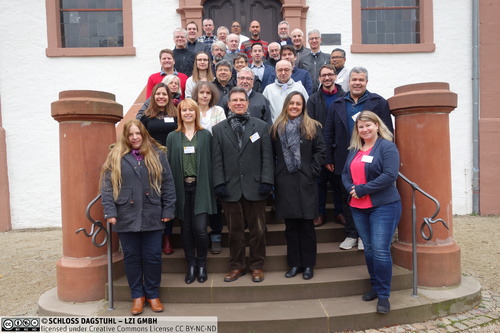
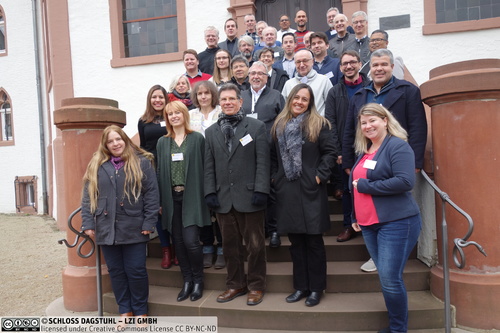
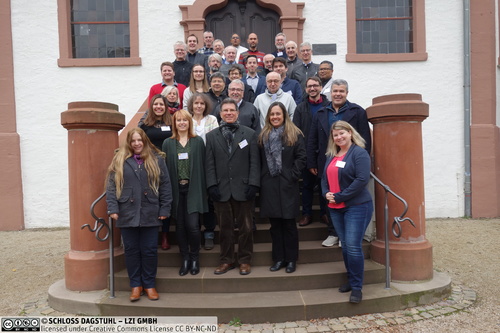
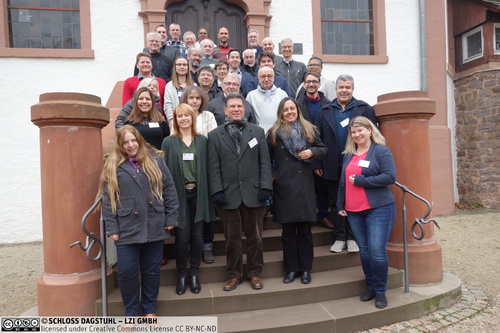
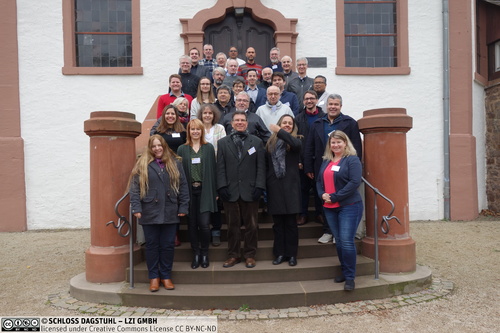
 Creative Commons BY 3.0 DE
Creative Commons BY 3.0 DE
